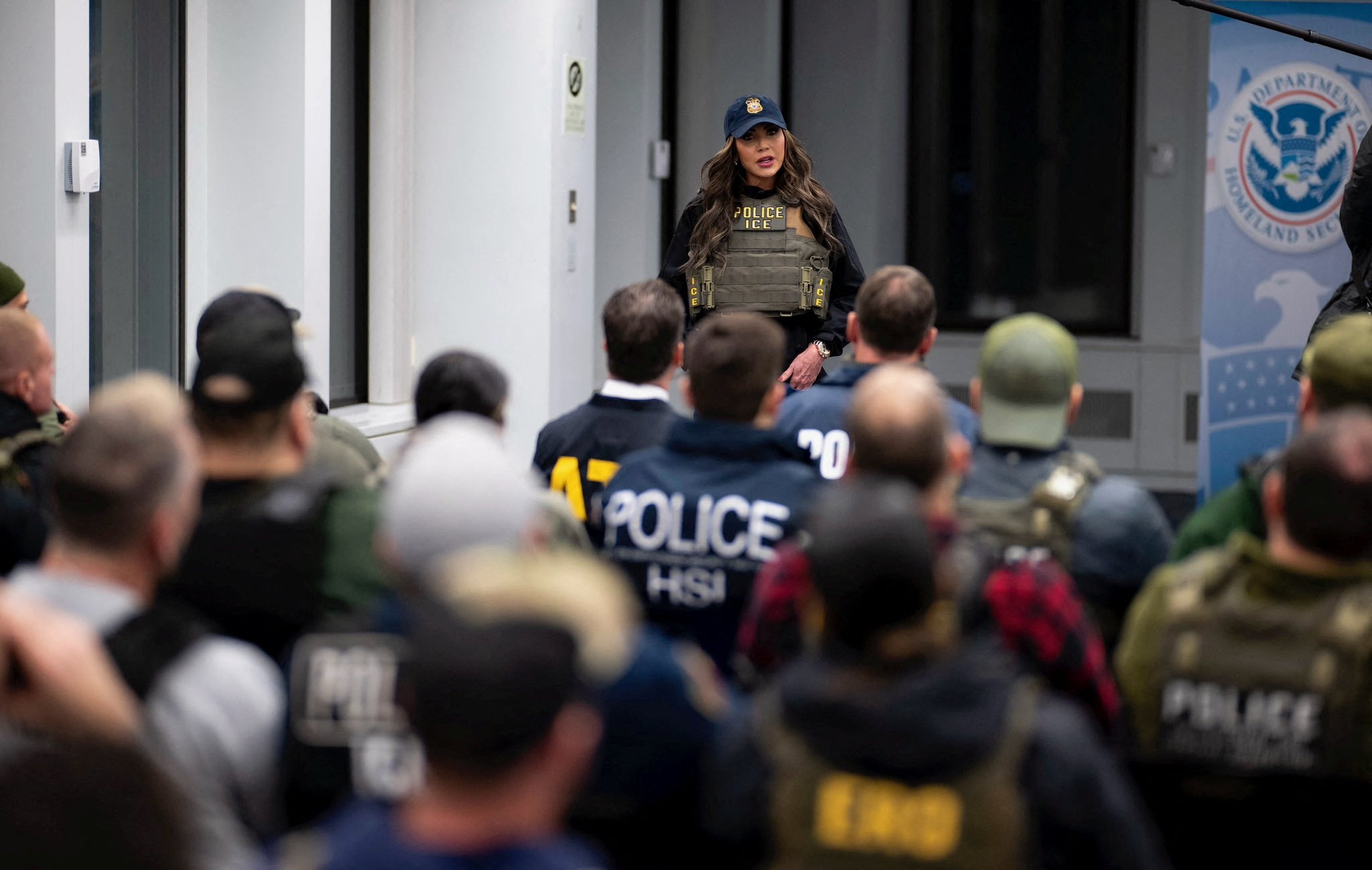Jose Luis had stopped to pump gas on his way to work in southern Texas when his family’s whole life changed.
ICE agents pulled up out of nowhere and demanded to know his immigration status. The father of five, who came to the United States from Mexico in 2010 when he was 19, was quickly placed in handcuffs and taken away.
Now, he is facing deportation and permanent separation from his wife and kids — and the family’s sole income is gone.
“His little girls ask every day ‘Where’s Dad? What time is he coming home?’” his wife, Rosa, who doesn’t want to break her children’s heart by revealing the truth just yet, tells The Independent. “I have to tell them he’s out working.”
“I’m really stressed right now, like really, really stressed. I don’t know what’s next,” she says.
Jose Luis is one of some 12 million undocumented immigrants in the U.S. — many of whom have lived, worked, paid taxes and raised families in the country for years — who are being targeted by authorities in what Donald Trump’s administration has promised to be the largest “mass deportation operation” in American history.
Agents with U.S. Immigration and Customs Enforcement have nearly doubled their daily arrest rate as part of the crackdown since Trump took office, and more than 10,000 people have been deported already on military flights widely publicized by the White House. The Trump administration is now using Guantanamo Bay to house some detainees.
The deportation drive has created a climate of fear in immigrant communities across the United States. Restaurants are being raided by ICE teams every day, traffic stops are turning into family separations and some parents worry about sending their children to school over fears they may be detained.

The Trump administration has not released official figures for how many deportations it has carried out since Trump returned to the White House on January 20, but ICE officials said at the end of January that it made an average of 710 immigration arrests over a five-day period, marking a dramatic increase from a daily average of 311 in a 12-month period through September under President Joe Biden. Some days it has reported as many as 1,000 arrests. That figure stands above a previous high set in the administration of Barack Obama, which averaged 636 daily arrests in 2013.
The processing time for people arrested by ICE can range from days to months. This week ICE announced that it would release some people it had detained because its holding facilities were filled beyond capacity.
Mexican President Claudia Sheinbaum said on Friday that her country has received nearly 11,000 deported migrants since Trump took office, including around 2,500 non-Mexicans.
Jose Luis’s family is one of thousands to have been plunged into crisis by the increased arrests. As the sole breadwinner, they relied on money from a small plumbing business he started.
“There was so much going through my head when I found out,” Rosa says. “All the payments for the house, the kids.”
Since Jose Luis was detained on 26 January, Rosa has had to sell belongings just to stay afloat. She sold two pickup trucks owned by the business and is being forced to leave the mobile home where they live and move in with her parents because she can’t afford the payments.

“It’s so shocking. We’ve been here for a long time, and this has never happened to us. So I’m just speechless,” she tells The Independent.
Rosa met Jose Luis in 2018 at a race track in Texas where they both live, and quickly fell in love. She had two children from a previous relationship, and they had three more together to form a large blended family.
Their sons, aged 11 and 2, and their three daughters, aged 9, 5 and 4, were all born in the U.S. They lived a happy life in small-town Texas before the arrests. Now, their family has been broken apart and she doesn’t know when or if they will be reunited.
She has only been able to speak to Jose Luis a few times since his arrest and has been desperately trying to raise money to mount a legal defense. But she fears the future.
“In the interview, they said that he didn’t have an option for a bond or to see a judge, so he will be deported,” she says.
Even before her husband was arrested, she says the ICE raids had a dramatic impact on their town.
“There’s a lot of people here in fear for their lives. The streets are really lonely. The stores are lonely. I mean, it was a big change,” she says.
“There are already people moving back to their countries because they’re scared of what’s coming next. Friends of mine that are removing their kids from school, moving to Mexico.”
While she tries to raise money to fight Jose Luis’s deportation, Rosa says she can’t imagine leaving the place she has called home since she was four years old.
“Honestly, I was that person that would be like, I’m a Texas girl, I wouldn’t move from Texas. But with all this going on, I’m speechless.
“I didn’t expect this. All I see on the news is Texas targeting all Hispanic people, all immigrants, and that’s really sad to us,” she says.






